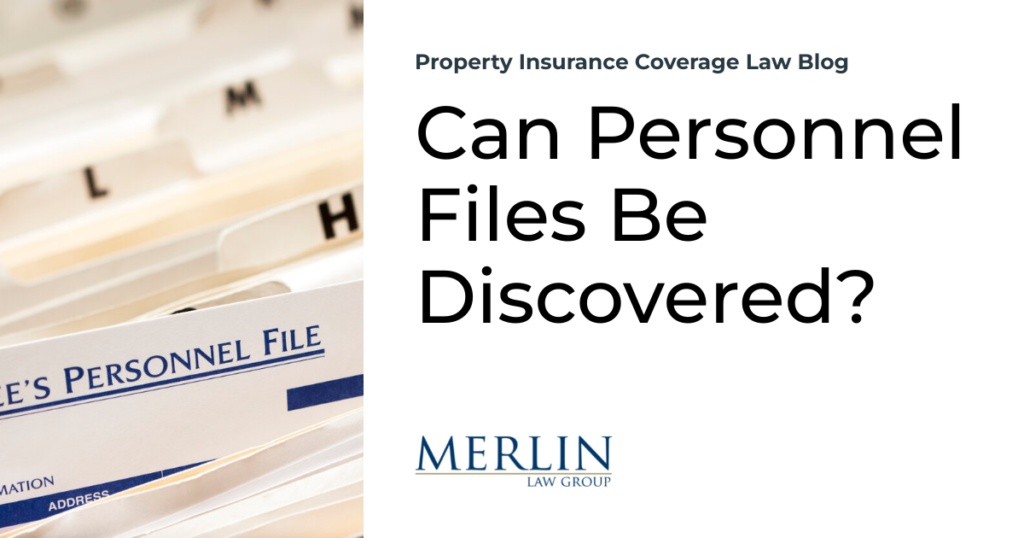Can Personnel Files Be Discovered?

Have you ever wondered what is in your personnel file at work? If you’ve been employed, a personnel file is something you likely had whether you knew it or not.
Personnel files can contain many different documents. Some things that can be found in personnel files are applications, resumes, job descriptions, records relating to offers and promotions, pay and compensation information, handbook and policy acknowledgments, warnings, and disciplinary actions, among other documents.
These documents can help make employers make wise and informed employment decisions. With employees of insurance companies, the documents in personnel files can also provide insight into the involved employees’ intents, goals, and motives.
So, are these personnel files discoverable? Can lawyers obtain these documents to inform their perspective of the intentions of the employees involved in the claim?
In Cason v. Builders Firstsource-Southeast Grp., Inc., the court stated in regard to personnel files: “[W]here the files sought are those of employees whose action or inaction has a direct bearing on the Plaintiff’s claims or Defendant’s affirmative defenses . . . personnel files are subject to discovery.”1
Further, in James v. Peter Pan Transit Mgmt., Inc., the court expounded that although there can be privacy concerns with personnel files, “when a public policy interest weighs against disclosure, disclosure may nevertheless be required where: (1) material is clearly relevant; and (2) the need for disclosure is compelling because the information sought is not otherwise readily available.”2
In Blount v. Wake Elec. Membership Corp., the court ordered production of personnel files of employees directly implicated by plaintiff because the files contained information that was “clearly relevant” and not otherwise readily available.3
It is important to keep these considerations in mind when deciding what you will be requesting through discovery.
Thought For The Day
Every action needs to be prompted by a motive.
—Leonardoda Vinci
1 Cason v. Builders Firstsource-Southeast Grp., Inc., 159 F. Supp. 2d 242, 247 (W.D.N.C. 2001).
2 James v. Peter Pan Transit Mgmt., Inc., No. 5:97-CV-747-BO-1, 1999 U.S. Dist. LEXIS 2565, at *32 (E.D.N.C. Jan. 20, 1999) (citing Blount v. Wake Elec. Membership Corp., 162 F.R.D. 102, 105-106 (E.D.N.C. 1993)).
3 Blount v. Wake Elec. Membership Corp., 162 F.R.D. 102, 105-106 (E.D.N.C. 1993).



